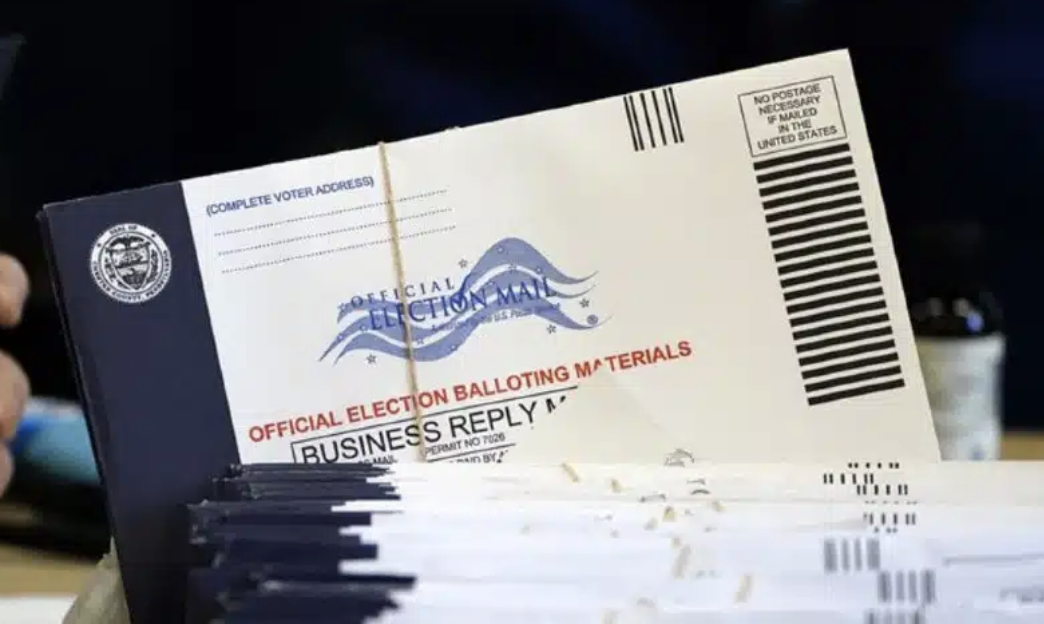Supreme Court Delivers Massive Ruling on Mail-In Voting Restrictions

The U.S. Supreme Court has rejected a challenge to Texas voting regulations that permit seniors to vote by mail automatically, while younger people cannot.
In Texas, Indiana, Kentucky, Louisiana, Mississippi, South Carolina, and Tennessee, seniors can request an absentee ballot without needing a specific reason. In other states, this is allowed only under certain circumstances.
Following its 2021 decision to dismiss a similar case against Indiana's voting laws, the court on Monday refused to hear an appeal from three Texas voters. This marks the third time the court has declined to hear challenges related to this Texas lawsuit, initially filed by the Texas Democratic Party during the COVID-19 pandemic.
The challengers claimed that the 26th Amendment, which was ratified in 1971 to lower the voting age to 18, prohibits age-based discrimination. They argued that the unequal treatment of voters based on age is unconstitutional.
The amendment states that the right to vote “shall not be denied or abridged … on account of age.” The Texas voters told the Supreme Court, “Whatever voting rights a state grants to people aged 65 and over, it must also grant to people under 65,” but their appeal was unsuccessful.
They sought to overturn an appeals court decision which ruled that Texas' voting rules are legal because facilitating voting for some does not hinder others. The 5th U.S. Circuit Court of Appeals in New Orleans also noted that the 26th Amendment, when ratified, did not include the right to vote by mail.
Most states either mail ballots to all voters or allow any resident to request an absentee ballot. However, Texas has taken a different approach, emphasizing the need to protect the integrity of the voting process, acknowledging that seniors might face difficulties such as limited mobility, making in-person voting challenging.
While anyone can request a mail-in ballot, Texas argued that expanding this option increases the risk of voter fraud.
In the 2022 midterm elections, about one-third of voters used mail-in ballots. The challengers pointed to various barriers faced by younger voters, including lack of transportation, long lines, difficulty accessing polling locations, and limited time off work.
Mail-in voting remains a significant issue ahead of November’s presidential election, with various court rulings nationwide.
Recently, the U.S. 3rd Circuit Court of Appeals made a notable decision affecting Pennsylvania, a crucial swing state. The court sided with the Republican National Committee (RNC) over signature verification for mail-in ballots.
The dispute centered on whether mail-in ballots that were timely but had incorrect or missing dates under the voter's signature should be counted. Democrats argued that the Materiality Provision of the Civil Rights Act of 1964 should apply, meaning such ballots should be counted. This provision states that an error or omission on voting-related paperwork should not deny the right to vote if it does not affect the voter’s qualification.
The RNC contended that enforcing the date requirement does not infringe on voting rights, as the Materiality Provision addresses voter qualification and registration, not specific ballot casting requirements.
RNC Chairman Michael Whatley called the 3rd Circuit ruling a "crucial victory for election integrity and voter confidence." He stated that Pennsylvanians should feel secure about their mail ballots, and that the decision rejects attempts to count undated or incorrectly dated ballots.
The RNC’s statement highlighted their previous victory on this issue before the Pennsylvania Supreme Court in November 2022. Although a federal district court later struck down the dated signature requirement in November 2023, the 3rd Circuit Court of Appeals has now supported the RNC’s stance.
The ruling, decided by a 2-1 vote among Democrat-appointed judges, is expected to influence similar legal battles nationwide, reinforcing mail ballot safeguards in key states.
The RNC has initiated 81 voter integrity lawsuits during the current election cycle, with more expected.